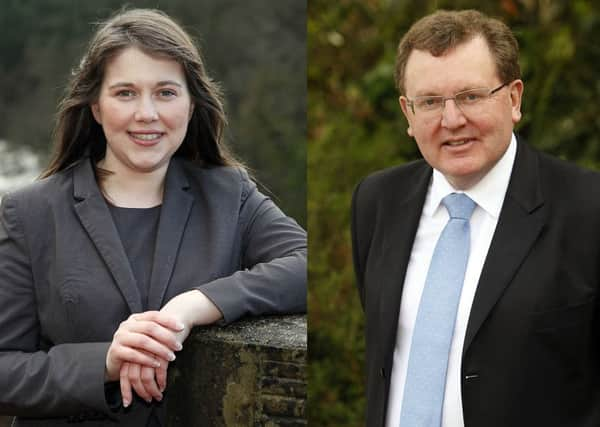Are borders an issue? Yes or No – You Decide


Aileen and David kindly agreed to debate the case for Yes and No at the Gazette’s Independence Debate in Lanark Memorial Hall on May 26.
They were only too happy to answer questions posed by our readers that we couldn’t quite get through on the night, thanks to a heated meeting which 420 people attended!
Advertisement
Hide AdAdvertisement
Hide AdSo, just a matter of hours before Carluke and Lanark Gazette readers go to the polls to decide on independence, we’re bringing you their responses.
Each hour on the hour, between 8am and 10pm today, we’ll post one of the answers to a question posed by a Gazette reader.
For each question posed, we will give one opinion from the Yes camp and one from the No camp.
Question: Northern Ireland is a country within the United Kingdom which uses the pound and borders with a foreign country, Southern Ireland, which uses the Euro. I have never read or heard of people or businesses in either country making a fuss over this and they appear to just get on with it. Why then does the Westminster Government insist that Scotland would have difficulties with borders and currency if Scotland votes Yes for Independence?
Advertisement
Hide AdAdvertisement
Hide AdAileen Campbell, Yes campaign: The Fiscal Commission Working Group considered a range of currency options for Scotland and concluded that a currency union would be in the best interests of not only Scotland, but also the rest of the UK. Anti-independence politicians know this to be true but it is politically convenient during the campaign period for them to suggest otherwise. A UK government minister ‘at the heart of the pro-union campaign’ who would have a ‘central role’ in the negotiations over independence told the Guardian on March 29 2014: “Of course there would be a currency union”. The minister continued: “Saying no to a currency union is obviously a vital part of the no campaign. But everything would change in the negotiations if there was a yes vote.” These comments show that the anti-independence stance on currency is purely political – a tactic intended to scare voters into voting no.
David Mundell. No campaign: The situation in Northern Ireland is very different and the independence of Ireland came about for very different reasons. Understandably, economics was not at the forefront of that decision. Nonetheless, a “border effect” is very likely to exist there, just as it does between France and Germany and the US and Canada. The SNP and the Yes Campaign have chosen to make much of this debate about making Scotland more prosperous. Therefore, it is important that we refute these claims where they are not true. Scotland trades more with England than the rest of the world combined and common sense tells us that erecting new barriers to trade and adopting a different currency is not going to be a positive thing.